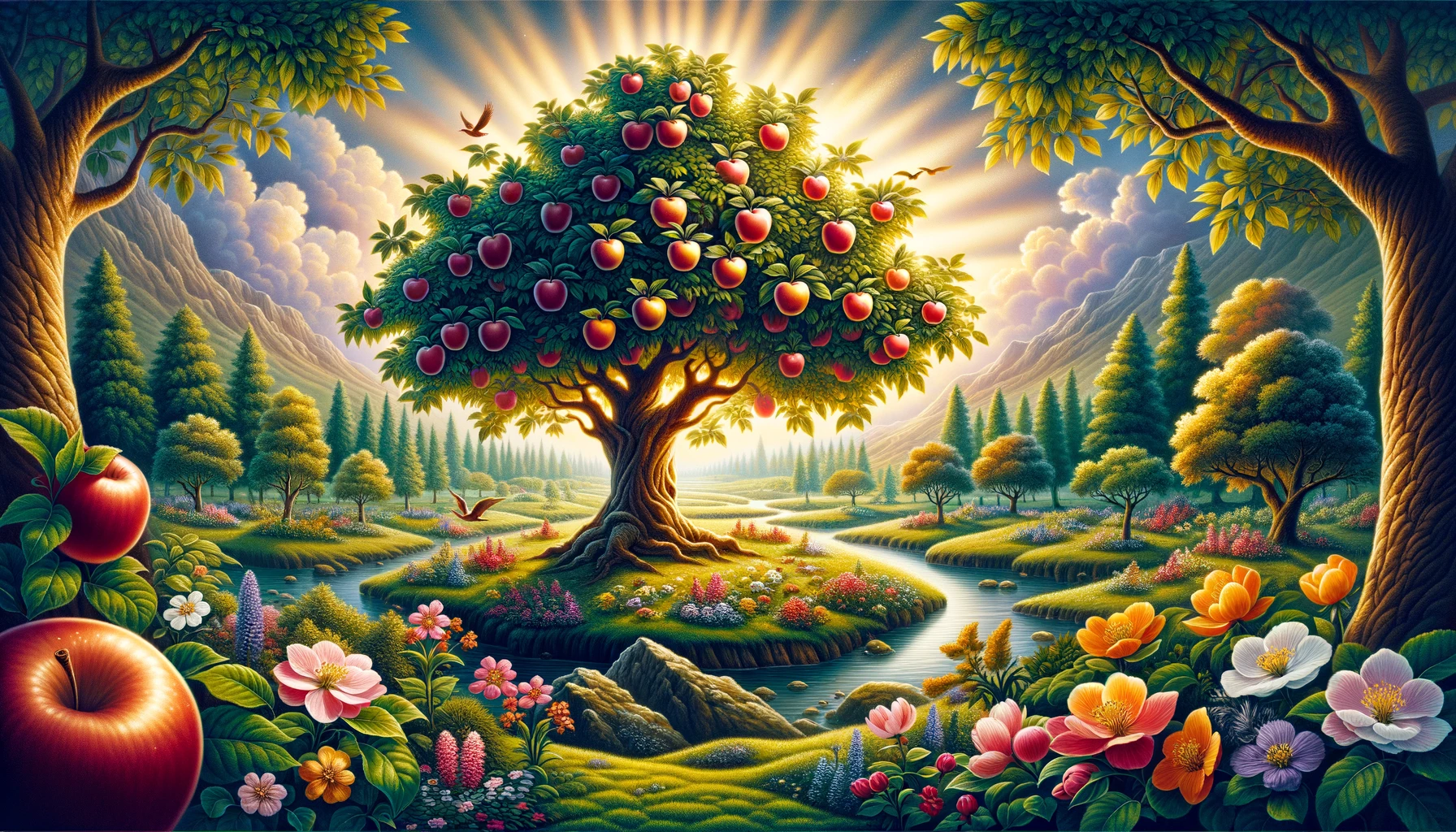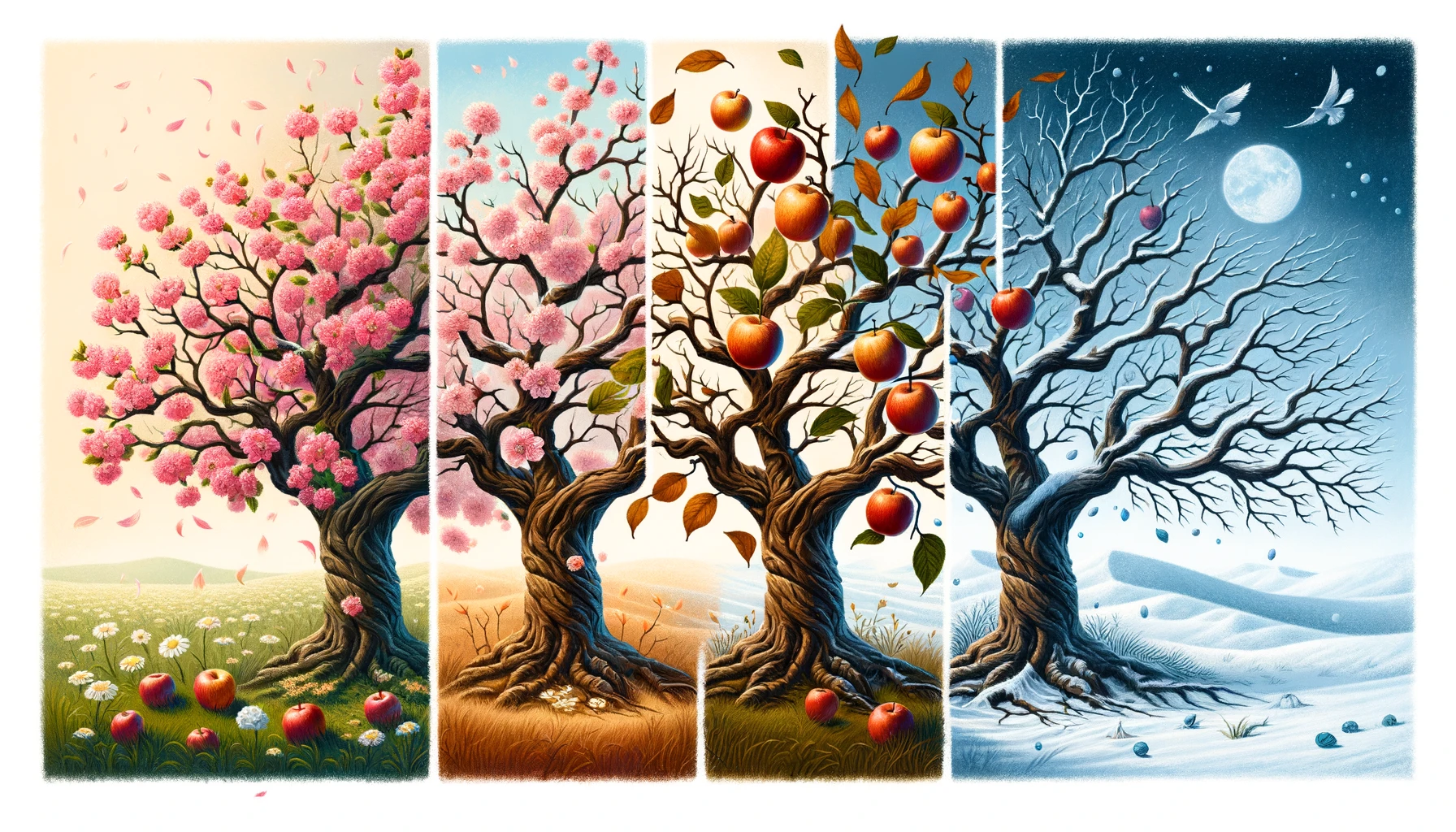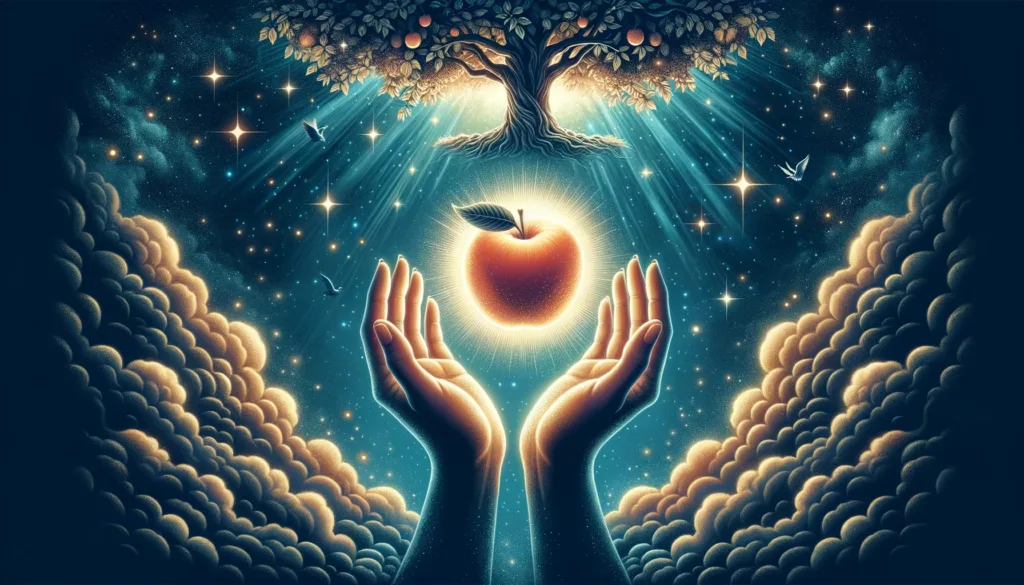In biblical literature, the apple tree holds profound symbolic significance, revealing layers of wisdom and spiritual insight.
As the adage goes, ‘The apple does not fall far from the tree,’ so too does the apple tree’s presence echo throughout the scriptures, from the Garden of Eden to the Song of Solomon.
Through careful analysis of these scriptural references, we can uncover the rich tapestry of meaning behind the apple tree, illuminating timeless truths and lessons for our own lives.
Key Takeaways
- The apple tree symbolizes the pursuit of wisdom and the consequences of disobedience in the biblical context.
- It represents the boundary between obedience and disobedience, as seen in the story of Adam and Eve in the Garden of Eden.
- The apple tree symbolizes wisdom and the potential consequences of choices, as depicted in Proverbs and other wisdom literature.
- In the Song of Solomon, the apple tree represents the beauty and passion of love, symbolizing emotional and spiritual nourishment in relationships.
Symbolism of the Apple Tree

The apple tree holds significant symbolism within the biblical context due to its associations with knowledge and temptation. In the Bible, the apple tree carries a spiritual significance that represents the pursuit of wisdom and the consequences of disobedience.
One of the most well-known cultural references to the apple tree can be found in the story of Adam and Eve in the Garden of Eden. In this narrative, the tree of the knowledge of good and evil is often depicted as an apple tree. Its fruit, forbidden by God, represents the temptation to seek knowledge beyond what is permitted.
The Apple Tree in the Garden of Eden

In the Garden of Eden, the apple tree symbolizes the pivotal moment of temptation and disobedience that forever altered the course of humanity’s relationship with God. According to the biblical account, God had given Adam and Eve everything they needed to live and thrive in the perfect paradise of Eden.
However, He had also given them one command: not to eat from the tree of the knowledge of good and evil. This tree, often referred to as the forbidden fruit, represented the boundary between obedience and disobedience.
Unfortunately, Adam and Eve succumbed to the temptation presented by the serpent and ate from the tree, resulting in the fall of man. This act of disobedience introduced sin and separation from God into the world, marking a significant turning point in human history.
The apple tree in the Garden of Eden serves as a powerful reminder of the consequences of disobedience and the need for redemption.
Now you might want to learn about the biblical meaning of an uprooted tree.
Apple Tree in Proverbs and Wisdom Literature
Throughout the Proverbs and other wisdom literature of the Bible, the apple tree continues to serve as a symbol of wisdom and the consequences of choices. The symbolic significance of the apple tree is deeply rooted in biblical references.
Proverbs 25:11 states, ‘A word fitly spoken is like apples of gold in settings of silver.’ Here, the apple tree represents wise words that bring beauty and value to a conversation.
In Proverbs 11:30, it is written, ‘The fruit of the righteous is a tree of life, and the one who is wise saves lives.’ This verse associates the apple tree with righteousness and wisdom, emphasizing their life-giving qualities.
The apple tree is depicted as a tangible representation of the wisdom one can obtain through making righteous choices. In the context of Proverbs and wisdom literature, the apple tree serves as a reminder of the importance of wise decision-making and the potential consequences that follow.
Curious to learn about other trees and their biblical meanings? Check out this article on what the palm tree means biblically.
The Apple Tree in the Song of Solomon

Continuing the exploration of the symbolic significance of the apple tree in biblical literature, the Song of Solomon presents a poetic depiction of its allure and romantic connotations. Within this ancient love poem, the apple tree serves as a powerful symbol, representing the beauty and passion of love.
The significance of the apple tree in biblical love poetry can be seen through the following aspects:
- Sensuality: The apple tree is used as a metaphor for physical desire and attraction between lovers, evoking a sense of passion and sensuality.
- Refreshment: Just as the apple tree provides shade and fruit, it symbolizes the emotional and spiritual nourishment that love brings to a relationship.
- Longing and fulfillment: The apple tree in the Song of Solomon represents the yearning for love and the fulfillment that comes when love is found, emphasizing the deep longing and satisfaction in a romantic union.
In this way, the apple tree in the Song of Solomon showcases the symbolism of love, desire, and fulfillment, making it a potent image in biblical love poetry.
Frequently Asked Questions
Are There Any Specific Rituals or Customs Associated With the Apple Tree in Different Cultures?
Apple tree symbolism in religious rituals involves the belief that the tree represents knowledge, temptation, and the fall of humanity. Various folklore and legends surrounding the apple tree depict it as a symbol of love, fertility, and immortality in different cultures.

